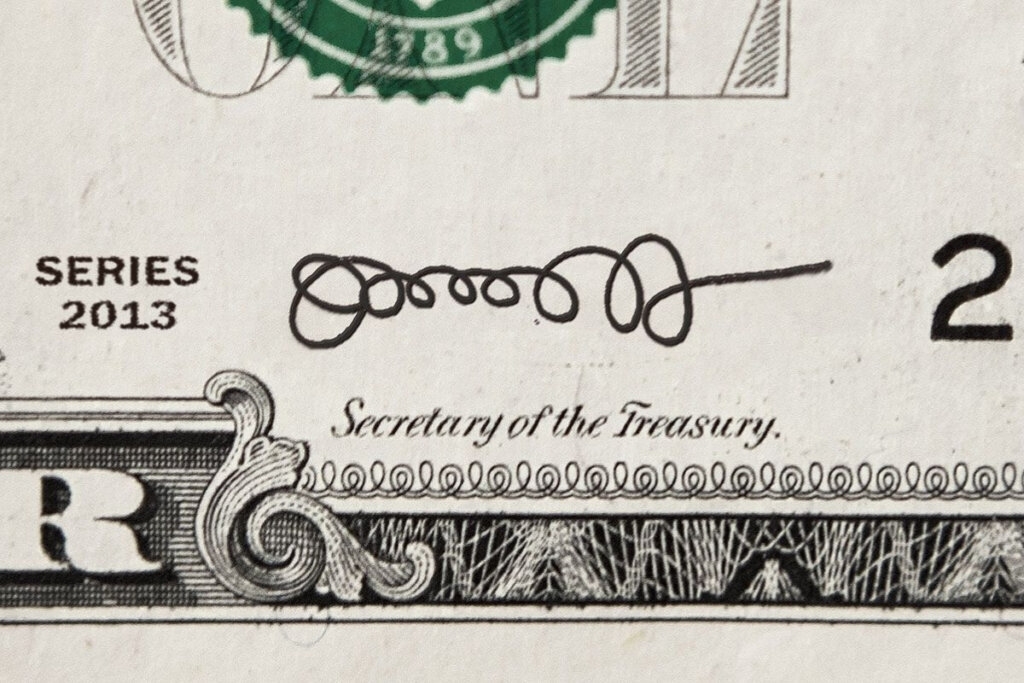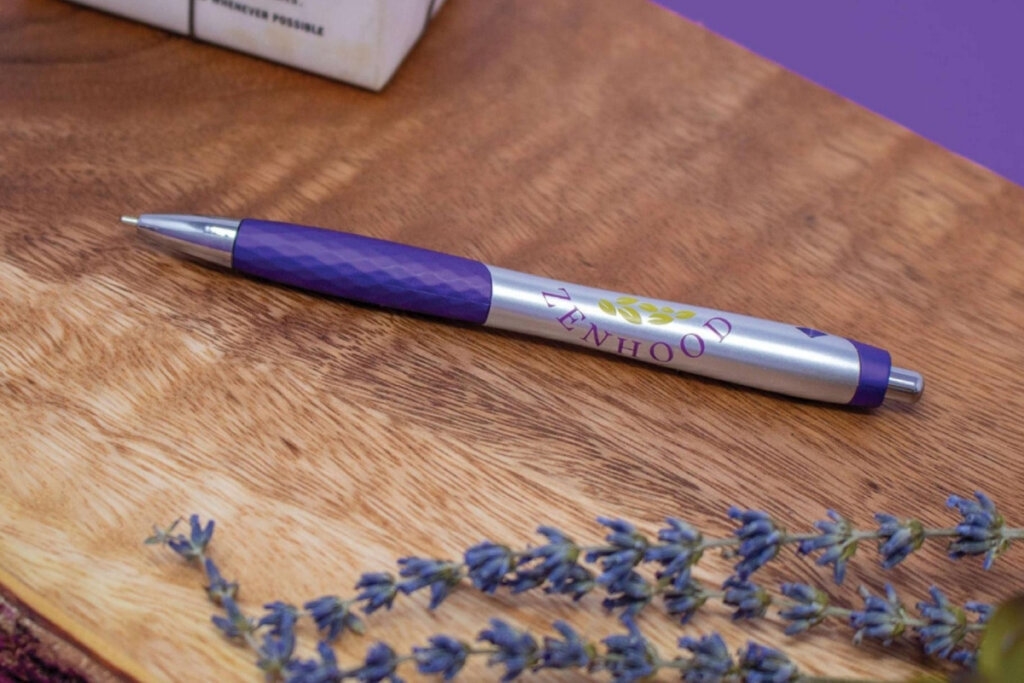Cursive Writing Boosts Cognitive Skills—And Is Still Needed In The Digital Age

With the prevalence of technology in all facets of daily life, from school to work to recreation, very little communication is done via hand-written correspondence. Notes are transcribed on tablets, grocery lists are tracked in apps and birthday cards are sent electronically. A lot of family conversations are even held via text message, often from different rooms under the same roof (but that's another story).
Thus, in a digital age, is handwriting via pen and paper even necessary? And from a promotional marketing perspective, is there any value for companies to use writing instruments, journals, planners and other paper products to build their brands? T
he answer to both questions is a resounding YES. Here's why.
Cognitive Benefits Of Learning Cursive Writing
Cursive writing was once a mainstay in children's education, as learning to read and write is at the very foundation of success. But as electronic communication overtook traditional hand-written forms of correspondence, the focus shifted.
The Common Core State Standards, the standardized educational benchmarks for U.S. public schools, have omitted cursive as a requirement. As a result, many schools have dropped cursive writing from the curricula in favor of keyboard proficiency.
The last decade has been filled with debate on both sides of the issue. There is an emotional attachment as well as historical context to cursive writing, but there are only so many hours a day that kids can spend in school. Without top skills in electronic communication, it is believed, they'll be doomed at work.
But there is more to consider than simply being able to spell words and form sentences quickly with a keyboard. In terms of overall learning, the very act of writing letters by hand is proving more integral to academic achievement than many realize.

In fact, scientists have discovered that learning cursive writing is an important tool for cognitive development, particularly in training the brain to learn “functional specialization” that is capacity for optimal efficiency.
“In the case of learning cursive writing, the brain develops functional specialization that integrates both sensation, movement control and thinking,” writes William Klemm, Ph.D., senior professor of Neuroscience at Texas A&M University, in this Psychology Today article. “Brain imaging studies reveal that multiple areas of brain become co-activated during learning of cursive writing of pseudo-letters, as opposed to typing or just visual practice.”
Klemm also says there is a spill-over benefit for thinking skills used in reading and writing. “To write legible cursive, fine motor control is needed over the fingers,” he writes. “Students have to pay attention and think about what and how they are doing it. They have to practice. Brain imaging studies show that cursive activates areas of the brain that do not participate in keyboarding.”
Benefits Of Hand-Writing Notes For School, Work And Personal Reflection
In addition to the cognitive development that occurs in the brain when learning cursive, the continued use of handwriting is just as crucial when learning anything new.
Since it's possible to type faster than write via pen and paper, it's logical for laptops to be commonplace in classrooms. But research now indicates the convenience and speed of typing information rather than writing by hand may be a disservice to the student.
“The present research suggests that even when laptops are used solely to take notes, they may still be impairing learning because their use results in shallower processing,” says researchers Pam A. Mueller and Daniel M. Oppenheimer. “In three studies, we found that students who took notes on laptops performed worse on conceptual questions than students who took notes longhand. We show that whereas taking more notes can be beneficial, laptop note takers' tendency to transcribe lectures verbatim rather than processing information and reframing it in their own words is detrimental to learning.”
In another study, researchers had similar findings and concluded “that because of the benefits for sensory-motor integration and learning, traditional handwritten notes are preferably combined with visualizations (e.g., small drawings, shapes, arrows, symbols) to facilitate and optimize learning.”
It really comes down to how the brain processes information when input via keyboard versus through tactile use of a pen.

“Researchers have found that note-taking associated with keyboarding involves taking notes verbatim in a way that does not involve processing information, and so have called this ‘non-generative' note-taking,” says Hetty Roessingh, professor of education at the University of Calgary, in this BBC article. “By contrast, taking notes by hand involves cognitive engagement in summarizing, paraphrasing, organizing, concept and vocabulary mapping—in short, manipulating and transforming information that leads to deeper understanding.”
These are just a few of the many benefits. Writing by hand can also lead to more confidence, increased likelihood of achieving goals, enhanced motivation and stronger self-discipline—all things that will get you ahead in school, at work and in life. For even more, check out this infographic from IvyPanda for 20 ways putting pen to paper is good for you.
Survey Results Say Most People Believe Learning Cursive Writing Is Important
Scientific studies aren't the only research being done. A survey by USA Gold pencils found that laypeople also instinctively know being able to write in cursive is still an essential skill for success in the workforce. The results show that 89% of adults and children think that it is still important to know cursive.
When asked whether they felt that cursive writing is a skill that all workers, no matter their occupation, should know, 70% of U.S. adults agreed it is a skill that workers should still possess. Furthermore, the study found that 79% of adults and 68% of children believe cursive writing still needs to be taught, as it is always going to be necessary.

Furthermore, the survey asked respondents to describe what they think about adults who do not know how to read or write in cursive. About half of adults and children (50% and 52% respectively) believe they probably never learned it in school; 30% of adults and 25% of children presume they are less literate (e.g. educated/learned) than those that can; while 7% of adults and 11% of children assume those that have not mastered penmanship proficiency are just not smart.
Penmanship—And Your Ability To Read Cursive Writing—Impacts Your Professional Reputation
Having your intellect questioned is never good. And when it's your boss, even in jest, it's even worse.
Look back several years to when President Obama appointed Jack Lew as Secretary of Treasury, his scrawl made international headlines. As reported by the UK's Daily Mail, “Obama joked that he had considered abandoning Lew's nomination after learning of his illegible signature, and added that it could become an international embarrassment. He added: ‘Jack assures me that he is going to work to make at least one letter legible in order not to debase our currency should he be confirmed as secretary of the Treasury.'” Ouch.

In addition to being outed for his poor penmanship in the media, the Twittersphere had a go at Lew as well. Check out this story in the Huffington Post to see photos of the comments (not surprisingly, no one cut him any slack).
In addition to handwriting legibility, your professional reputation is also impacted by your ability to read others' cursive writing, which is becoming a bigger issue as younger generations who haven't been taught this skill enter the workforce.
As this blog post describes, it's really awkward when an employee can't read notes and edits that are provided in cursive. It's a difficult situation to navigate without sounding unprofessional, and there is potential for limited growth opportunities because of this barrier.
Here's the good news: You're never too old to learn cursive and improve your overall handwriting skills. Laurence Pierson, a former teacher in Paris, now works as a handwriting instructor and says business is booming.
“It's not because children have any kind of learning or physical impairments but because they haven't gotten the necessary instruction,” she explains in this article. Adults, including teachers and people preparing for competitive exams, are also seeking help. “Handwriting,” she says, “isn't like riding a bike. You do, in fact, lose the skill if you don't use it.”
Writing A New Future
Dr. Klemm notes in this Psychology Today article that, “School systems, driven by ill-informed ideologues and federal mandate, are becoming obsessed with testing knowledge at the expense of training kids to develop better capacity for acquiring knowledge.”
While teaching to the test has been a practice for a decade or more, there seems to be continued interest in teaching cursive writing because of all the evidence of its benefits. As such, many states are now reinstating it into public school curriculum. For those in school systems without current cursive writing curriculum or for those caught in the gap when it wasn't taught, there are resources for learning penmanship on your own such as Learning Without Tears, New American Cursive and Zaner-Bloser, among others.
But cursive writing isn't just for the kiddos; it can keep adult brains finely tuned as well. Keep skills sharp, look for ways to incorporate it into daily activities and encourage it in the workplace and through promotions.
Partner with local schools (public, private, charter, Montessori) to provide writing instruments (decorated with your logo) to students. You could even sponsor a curriculum to help those schools that don't have the resources to teach penmanship bring it back into the learning environment. You'll boost your organization's brand recognition while building valuable goodwill within the community.
In the office, rather than sending an email to employees thanking them for a job well done, give them a handwritten note of thanks. Customers will also take notice of a thank-you card with handwritten sentiments of appreciation for their business. Not only will your brain get a workout, but you'll also be remembered because your communication is more personal and sincere.
Give executive writing instruments as business gifts. Include a branded card with a handwritten note that talks about the art of handwriting and how you bring that kind of artistic flair and level of detail to the products and services you provide.
Have fun by celebrating National Handwriting Day on January 23. Host a contest and invite employees and/or customers to write—in cursive!—a favorite quote and have everyone vote on the one with the best penmanship. The winner receives an elegant, engraved pen/pencil set with your logo and/or their name.
However you get involved, remember these words from Philip Stanhope, the 4th Earl of Chesterfield, British statesman and man of letters: “
A man's penmanship is an unfailing index of his character, moral and mental, and a criterion by which to judge his peculiarities of taste and sentiments.”
We couldn't agree more.
Inspired to write a new chapter for your promotions? Check out these must-have promotional writing instruments to fit any budget, these top eco-friendly promotional pens and these top eco-friendly journals.
Then contact us at hello@corporatespecialtes.com or book an appointment at https://meetings.hubspot.com/corpspec/chat-about-swag for a quick 10-minute chat, 20-minute new product call or 30-minute brainstorming session. Our concierge service is standing by!

